'Essential Grammar' by Jennifer Webb and Marcello Giovanelli
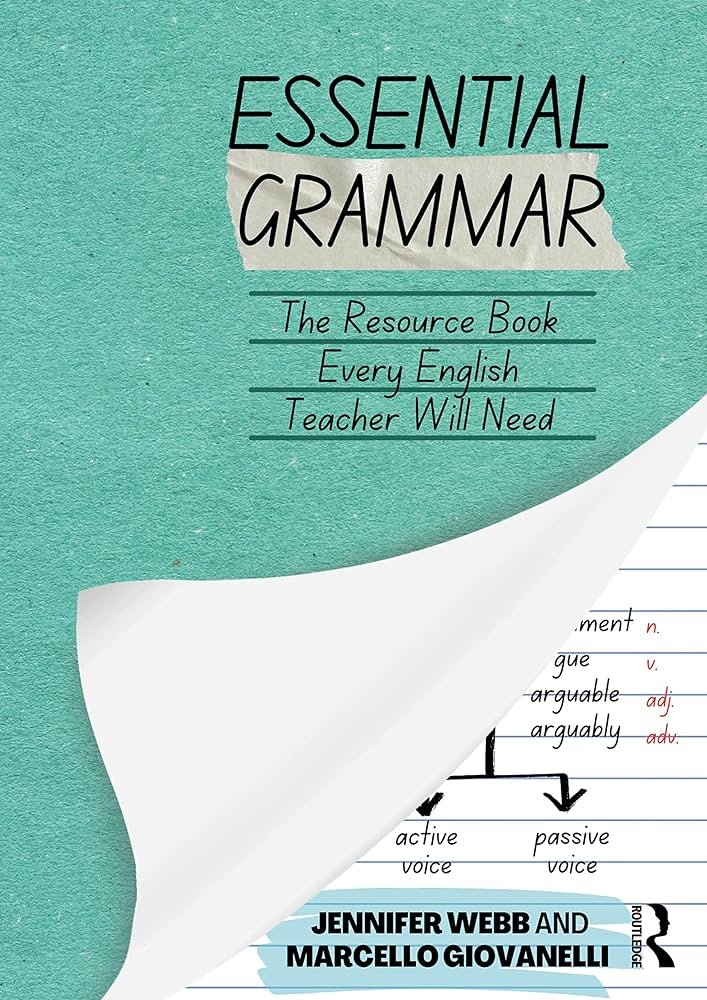
‘Grammar’ has at times been as dirty a word as you can imagine in the English teaching world. As Jennifer Webb and Marcello Giovanelli state at the start of their new book Essential Grammar, The Resource Book Every Secondary English Teacher Will Need:
Grammar has been branded as elitist, dry, oppressive and pedantic.
There you go: four adjectives hammering down on the lid of an essential part of the fabric of both written and spoken language. But the fact is that we move in a world of grammar (or, rather ‘grammars’), just as a fish swims in water.
It is the authors’ contention that teachers have a positive opportunity to use grammatical knowledge and informed classroom practice as empowering and liberating. Their expertise is used to good effect here, since grammar is so little part of third-level or teacher-training courses in Ireland, or I think the UK (much of my own knowledge comes from once teaching Latin, a wonderful experience). Rather than being rule-bound and constricting, they believe grammar is ‘about possibilities’, and that teachers should be explicit about it, making language awareness central to their classroom practice.
They show this through a coherent sequence of chapters underpinned by many diagrams and tables, with the technical terminology always shown through examples and in a helpful teaching context. At no point is this book ‘dry’ or ‘pedantic’: there are no discrete meaningless rote exercises here. Instead, the authors keep their eye on the end purpose: excellent purposeful and expressive writing. This is the case whether they are looking at the passive/active voices, the use of affixes, or how to use a corpus tool. In each case the teacher is the central resource, using his/her knowledge and expertise as he/she judges fit in the context of a particular task, while having an overall sense of purpose (they mention the accessible work of Efrat Furst as a guide to best cognitive principles):
Teaching grammar over time is about more than the activities you do in the classroom. It is about maintaining a culture of language awareness in the classroom.
They are keen on modelling as good practice (a visualiser is a handy classroom tool), which helps metacognition about the extraordinarily complex matter of constructing sentences, so that children are able to develop awareness and confidence in their writing. As teachers we tend to find writing easy and thus suffer from the curse of knowledge, but we should never forget what a demanding and in many ways unnatural process it is.
There is a lot of practical, actionable material here, and a lot of information clearly presented for teachers who feel their own knowledge is shaky, and are not confident. Jennifer Webb and Marcello Giovanelli have provided a helpful guide to an inescapably important area of our teaching.
Comments on today’s Leaving Certificate Paper 1 Higher Level.
A report on another excellent and uplifting ‘English Meet’, with six teachers sharing enthusiasms and good practice.
John Warner’s More Than Words: how to think about writing in the age of AI is an early and eloquent response to a technology which is particularly challenging for English teachers.
We have a vacancy for a full-time English teacher, starting in September 2025.
On Tuesday 18th November 2025 I am giving a webinar on how teachers can help students revise Macbeth in the months leading up to the Leaving Certificate.
Repeat webinar on teaching Claire Keegan’s Small Things Like These for those who missed it in 2024.
A webinar introduction to teaching Othello, especially in the Leaving Certificate, on Wednesday 10th September 2025.
All English teachers in Ireland should read the response of the Irish National Organisation for Teachers of English to the recent draft curriculum specification for Leaving Certificate English.
Artificial Intelligence: real literacy is a short book by Paul Matthews and Jason Gulya that is blessedly free from nonsensical hype, and gives some practical and sensible suggestions for classroom teachers.
Initial thoughts on the Draft Curriculum Specification for Leaving Certificate English (February 2025).
Emma Smith’s introduction to the Macbeth volume in The New Oxford Shakespeare series is excellent.
Thoughts on the first Advice Paper on Education in Ireland, from the AI Advisory Council, February 2025.
A talk through a presentation on teaching Claire Keegan’s novel Small Things Like These.
Harriet Walter’s She Speaks! What Shakespeare’s women might have said is an entertaining and insightful account of many of the plays’ female roles.
The fourth English Meet for English teachers in the Dublin area will be on the evening of Thursday 8th May 2025.
A revisiting of Thomas Newkirk’s book The Art of Slow Reading in the new AI world.
Links to all the podcasts and transcripts from the ‘King Lear scene by scene’ series.
The final episode of King Lear scene by scene looks at the cataclysmic last scene of the tragedy,
Episode 9 of the King Lear scene by scene podcast looks at the first two scenes in Act 4, the first in the immediate aftermath of Gloucester’s blinding, the second an opportunity to look at the character development of Albany throughout the play.
Perhaps Daisy Christodoulou’s new book on the VAR system in football has relevance to Leaving Certificate reform in Ireland.
Episode 8 of the King Lear scene by scene post looks at the horrifying Act 3 scene 7 - the blinding of Gloucester, and how images of seeing and blindness ramify through the story.
The integrity of Leaving Certificate English is being threatened by misconceived reform proposals.
There’s a sense that right now the world is particularly dark. We often hear the unlovely word ‘polycrisis’. At such a time, English teaching might seem almost irrelevant and ineffectual. What can we do?
Episode 6 of the King Lear scene by scene podcast looks at the first three scenes of Act 3, as the storm takes over.

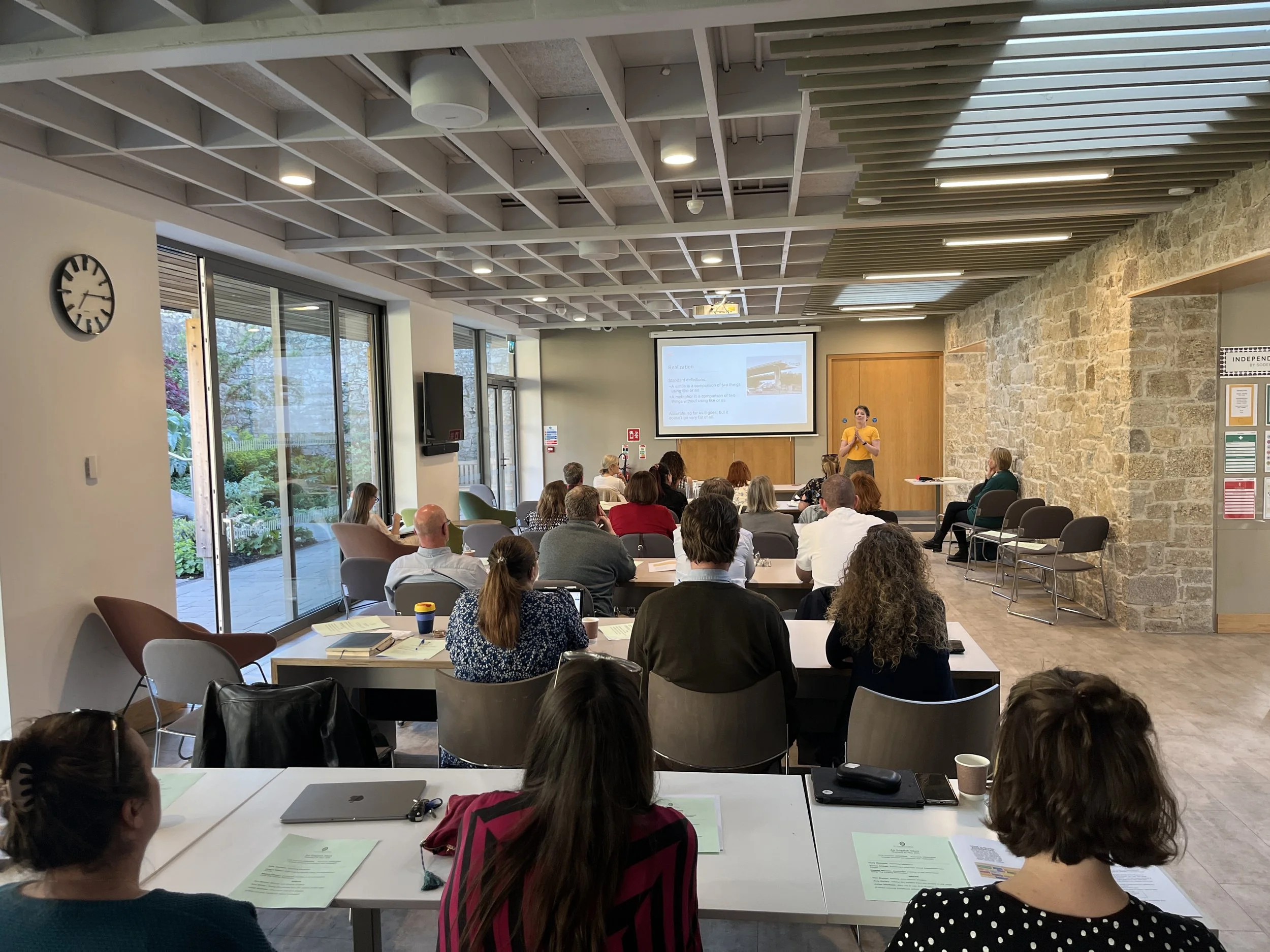


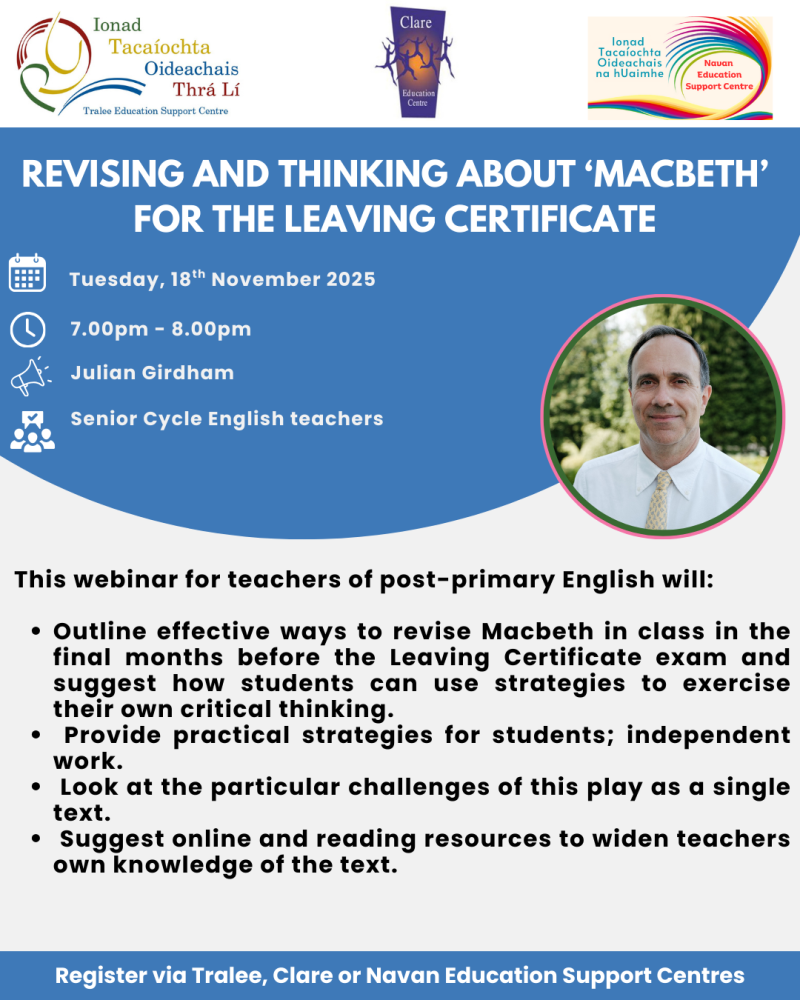

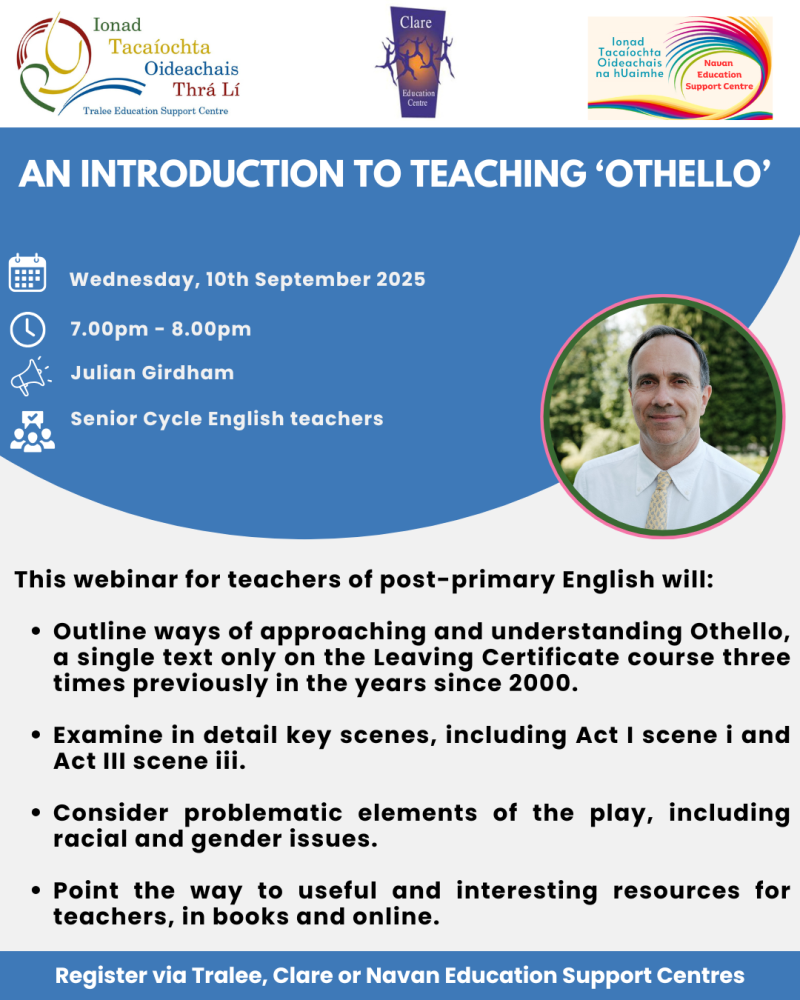

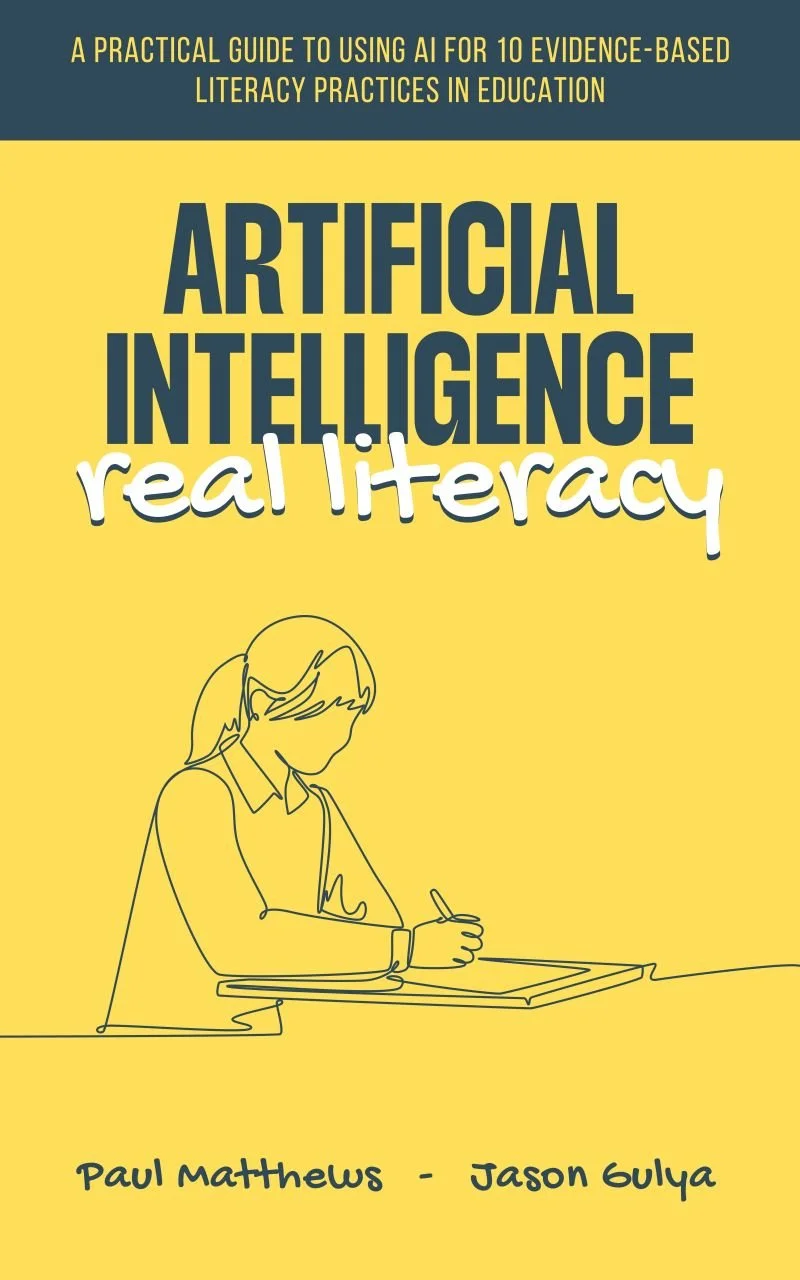












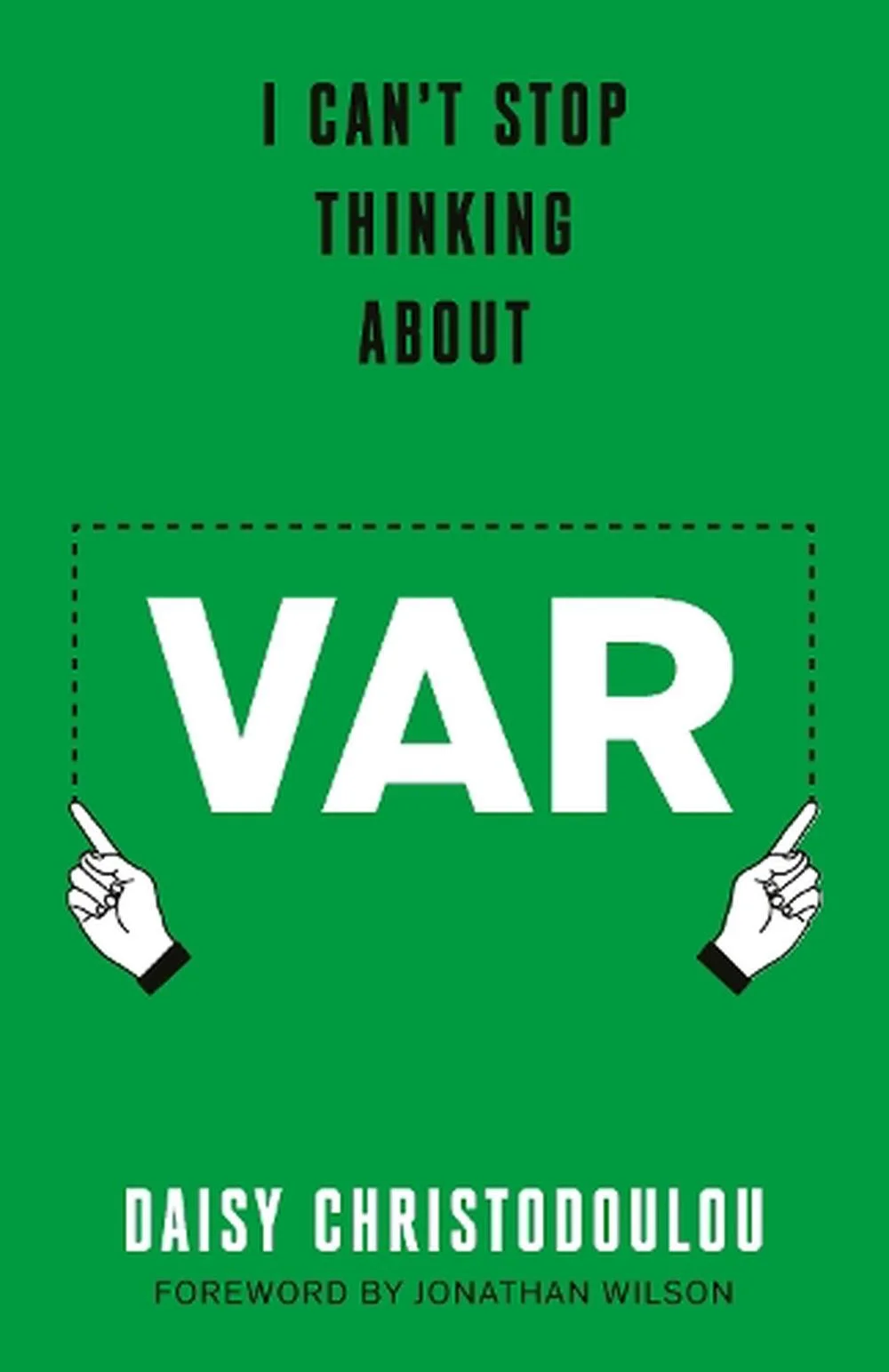



At the end of the academic year, an overview of where English as a subject is in the Republic of Ireland.